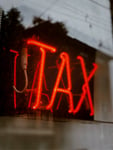In the bustling tourist hotspots of Thailand, frustration is brewing among hotel operators. They’ve watched with bated breath as the support promised by the government’s Half-Half travel scheme sputters along with chaotic inefficiency. Launched with much fanfare on July 1, this well-intentioned initiative sought to rekindle the spirit of domestic travel during Thailand’s lean travel months, by covering up to half of the accommodation costs.
However, weeks into the program, expectations have been dashed against the jagged rocks of reality. With technical snafus and murky guidelines, the scheme’s unwieldy digital platform has proven to be more of a hindrance than a help. “It’s a different problem every day. From platform crashes to ‘guess-the-rule’ games, there’s no assurance of getting reimbursed,” laments Thienprasit Chaipatranand, head honcho of the Thai Hotels Association. The question on every hoteliers’ lips? Is all this headache really worth the 50% discount?
Determined not to go down with a sinking ship, the entrepreneurial spirit of these Thai hoteliers shines through. Instead of navigating the quagmire of governmental processes, they’ve chosen a simpler path: the “Thai Price” promotions. Yes, these packages might cost a smidge more than government-subsidized stays, but they come without drama and have quickly cultivated a loyal domestic following. An operator from Surat Thani reveals, “We held out for reservations through the scheme. But now, we’re taking the reins and promoting directly—sans apps, approvals, or headaches.”
This wave of energetic independence has reverberated through other tourist magnets like Pattaya, Rayong, and Khao Yai, pushing traditional marketing into obsolescence. It seems like even the famed 500-baht coupons can’t hold a candle to the convenience of app-based deals. Travelers are opting for instantaneous confirmations through platforms like Agoda and Booking.com, which usually offer better rates and less red tape.
The statistics paint a challenging picture. With nearly 2 million people signed up for the scheme, a substantial majority remain deserted by system failures — ironic for a program intended to boost simplicity. By mid-July, just shy of 200,000 entitlements had been claimed, leaving over 300,000 languishing in the digital ether. Destinations such as Chon Buri, Prachuap Khiri Khan, and Phetchaburi sparkled as top choices, but without a major overhaul, hoteliers worry that the scheme could wilt before fully blooming.
Unperturbed by the quagmire, Tourism Minister Sorawong Thienthong has rallied to the scheme’s side, deeming it a dream opportunity for travelers to indulge in cut-rate vacations while supporting local businesses. There are whispers in the corridors of power about six sparkling new stimulus campaigns, cumulatively worth nearly 4 billion baht, waiting to leap off the approval line. Yet, skepticism abounds. Unless these new initiatives iron out the wrinkles of user frustration and improve accessibility, the tourism industry might continue on its own resourceful merrymaking without governmental crutches.

















Can’t believe these hotel operators are bailing on the scheme. It seems like a great idea on paper!
Yeah, it might look good on paper, but the reality is a nightmare. If you can’t even get reimbursed, what’s the point?
I see your point. But still, wouldn’t working with the government help them long term?
No way! The bureaucracy in Thailand is a pain. Better to go independent!
These poor hoteliers are just trying to stay afloat. I tried booking through the scheme once but gave up.
Same here. It’s a mess, and honestly, Thai Price promotions are way more appealing. Immediate confirmation is key.
Exactly, who wants to deal with crashing apps when planning a vacation?
I think the government should have foreseen these technical issues. This isn’t the first digital scheme they’ve botched, right?
Come on, give them some credit. How often do these big initiatives roll out flawlessly?
I worry about what will happen if these schemes and hotel promotions clash. How will businesses sustain themselves?
Good question! It could lead to a price war, or hotels might just use it to create urgency and scarcity.
Thai Price deals all the way! Better rates, fast buttons, and no stress.
For sure! Plus, you’re still supporting local hotels. Win-win, if you ask me.
This fiasco underscores the need for better training and infrastructure. No one should be surprised.
What a shame. It seemed like an opportunity for folks to visit places they’d usually skip over.
True, but isn’t it more about direct human connections and better service than navigating a failing system?
Are the new stimulus campaigns going to be just as flawed? I hope they learn from this mess.
Honestly, doubt it. History tends to repeat itself, especially with government programs.
That’s disheartening but probably true. Let’s hope they consult with actual users this time.
I’ll stick to online booking platforms. More reliable and similar discounts.
Why does the government get involved in this stuff anyway? Let the market decide!
I’m worried small operators might get wiped out if the program doesn’t deliver soon.
There’s risk for everyone involved. The new initiatives need to be more adaptive.
Time will tell, but either way, people will travel. They always do.